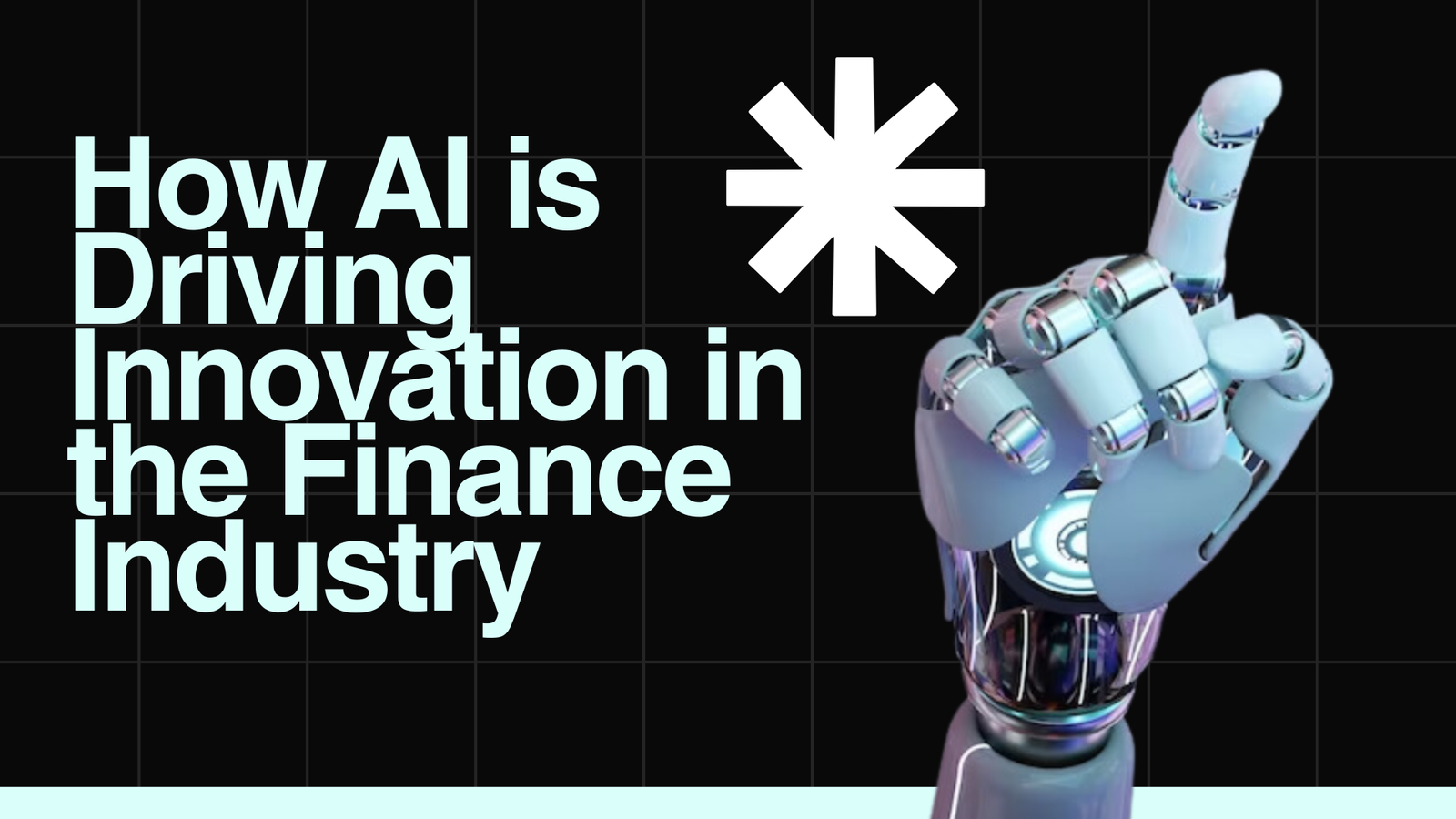AI is transforming the finance industry by making processes smarter, faster, and more efficient. From fraud detection to automated trading and personalized banking, AI is helping financial institutions improve accuracy, reduce risks, and enhance customer experiences. By analyzing large amounts of data, AI can detect patterns, predict market trends, and provide real-time insights, enabling smarter decision-making. AI-powered chatbots and virtual assistants are also reshaping customer service by offering instant support and personalized recommendations.
Also, AI-driven automation is streamlining loan approvals, credit scoring, and risk assessments, making financial services more accessible and efficient. In this post, we’ll explore how AI is revolutionizing finance and why businesses that embrace AI-driven solutions are staying ahead in this fast-evolving industry.
The Impact of AI on Innovation in the Finance Sector
AI is significantly transforming the finance sector by driving innovation, improving efficiency, and enhancing decision-making. Here’s how AI is making an impact:
1. Fraud Detection & Risk Management
AI plays a crucial role in identifying fraudulent activities and managing financial risks. By analyzing transaction patterns in real time, AI detects unusual behaviors that may indicate fraud, such as unauthorized transactions, identity theft, or money laundering. Machine learning models assess risk levels based on historical data, helping financial institutions prevent losses before they occur.
AI-driven fraud detection systems continuously learn and adapt, making them more effective at stopping sophisticated cyber threats. Additionally, AI-powered risk management tools help banks and insurers assess the probability of defaults, reducing financial uncertainty.
2. Automated Trading & Investment Strategies
AI-powered algorithms have revolutionized stock trading by executing trades at lightning speed based on market trends, news sentiment, and historical data. These systems use predictive analytics to identify profitable opportunities, minimize risks, and optimize investment strategies. Automated trading, also known as algorithmic trading, removes human bias and emotions from financial decisions, ensuring faster and more accurate trades.
Hedge funds, investment firms, and even individual traders leverage AI for real-time market analysis and portfolio management. Some AI systems also adapt strategies dynamically, reacting to sudden market changes for maximum profitability.
3. Personalized Banking & Financial Services
AI enhances customer experiences in banking by offering personalized recommendations and financial advice. Banks use AI-driven insights to tailor loan offers, savings plans, and credit card recommendations based on individual spending habits. AI also powers digital banking assistants that help users track expenses, set budgets, and make smarter financial decisions.
By analyzing customer behavior, AI enables banks to deliver more relevant and efficient services, improving customer satisfaction and loyalty. Additionally, AI-driven biometric authentication and voice recognition make banking more secure and convenient, reducing the risk of fraud.
4. AI in Credit Scoring & Loan Approvals
Traditional credit scoring models rely on limited data, but AI enhances this process by analyzing a broader range of financial behaviors. AI can assess creditworthiness using alternative data sources, such as utility bill payments, online spending habits, and social media activity. This allows lenders to make faster and more accurate loan approvals while reducing bias in decision-making.
AI-powered systems help financial institutions expand access to credit for individuals who may not have traditional credit histories. Furthermore, AI automates document verification and underwriting, accelerating the approval process and improving efficiency.
5. Regulatory Compliance & Reporting
Financial institutions must comply with strict regulations, and AI simplifies this process by automating compliance monitoring and reporting. AI-driven tools scan vast amounts of financial data to detect anomalies, flag potential regulatory violations, and generate accurate reports. These systems help banks and financial firms avoid costly penalties by ensuring adherence to industry regulations.
AI also assists in anti-money laundering (AML) efforts by identifying suspicious transactions and reducing false positives. With AI-powered compliance tools, organizations can stay ahead of changing regulations while maintaining transparency and trust with customers.
6. AI-powered chatbots & Virtual Assistants
AI chatbots are transforming customer service in the finance industry by providing instant, 24/7 support. These virtual assistants handle common banking queries, assist with transactions, and offer financial guidance without human intervention. AI-powered chatbots use natural language processing (NLP) to understand user inquiries and provide relevant responses.
They help banks improve customer service, reduce wait times, and enhance user engagement. Some advanced chatbots even offer investment advice, personalized financial insights, and proactive fraud alerts. By integrating AI-driven chatbots, financial institutions can deliver seamless and efficient customer interactions while reducing operational costs.
7. Predictive Analytics for Market Trends
AI-driven predictive analytics enables financial institutions to anticipate market trends and economic shifts. By analyzing historical data, news articles, and global events, AI can provide valuable insights into stock market movements, currency fluctuations, and investment risks. Traders and analysts use AI to make informed decisions, identify growth opportunities, and mitigate potential losses.
Predictive analytics also helps banks forecast demand for financial products and optimize their strategies accordingly. AI models can process vast amounts of financial data in seconds, helping businesses stay ahead of market changes and make proactive decisions.
8. Robo-Advisors & Wealth Management
AI-powered robo-advisors are making wealth management more accessible to a broader audience. To build and manage customized portfolios, these automated financial advisors use algorithms to analyze a user’s financial goals, risk tolerance, and investment preferences. Robo-advisors offer low-cost investment management solutions without human intervention, making them an attractive option for individuals looking to invest efficiently.
They continuously monitor and rebalance portfolios, ensuring optimal performance based on market conditions. Some robo-advisors also use AI-driven behavioral insights to guide investors toward smarter financial decisions, reducing impulsive trading and maximizing long-term gains.
Final Words
AI is revolutionizing the finance industry by enhancing security, automating processes, and improving decision-making. From fraud detection and automated trading to personalized banking and robo-advisors, AI is helping financial institutions operate more efficiently and offer better services to customers. AI-powered chatbots are also transforming customer interactions, making banking more accessible and responsive. Partnering with an AI chatbot development company can help businesses integrate smart, automated solutions that improve customer support and streamline operations. As AI technology continues to evolve, its role in finance will only grow, ensuring greater innovation, security, and customer satisfaction.














Leave a Reply